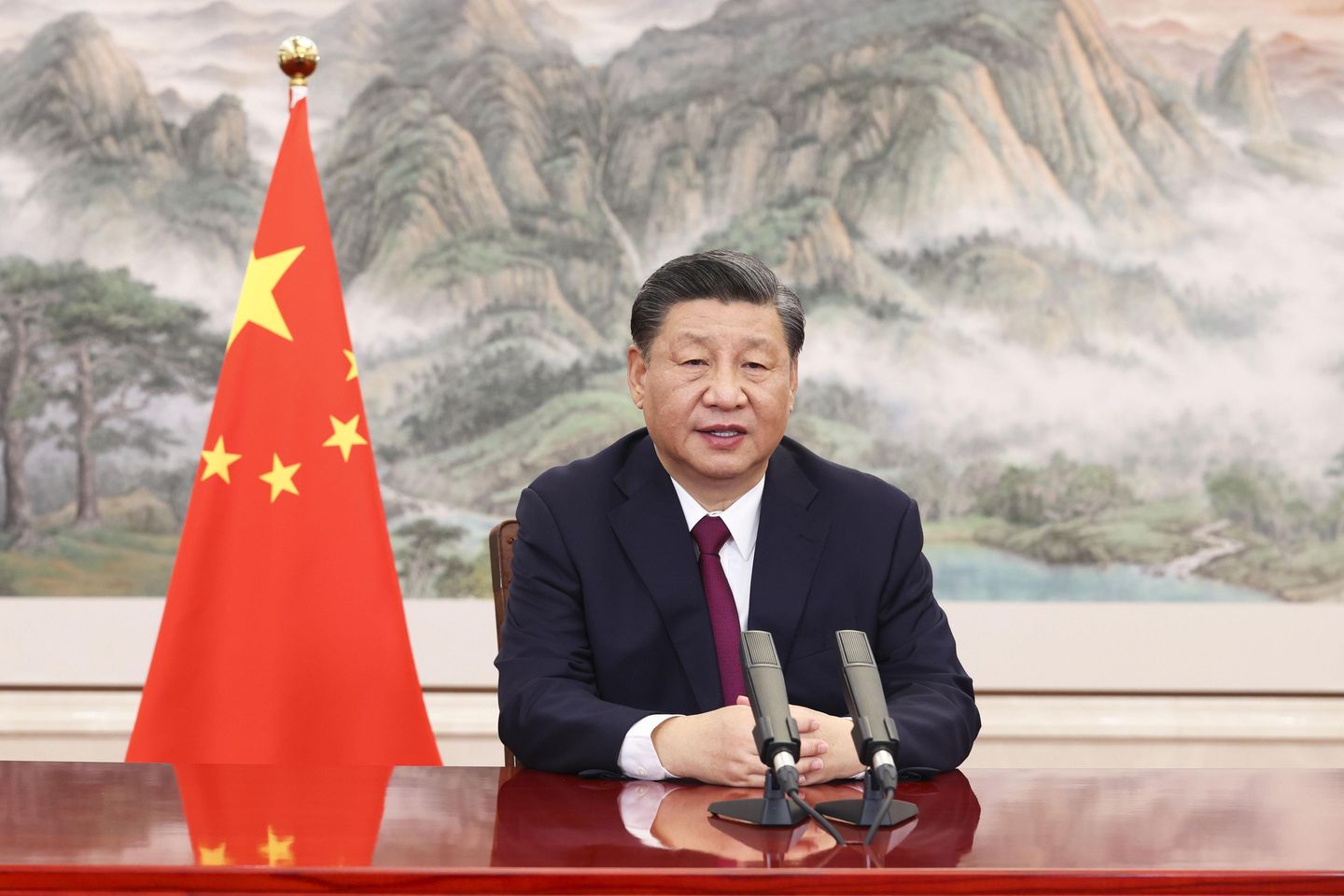

BEIJING — Chinese leader Xi Jinping on Thursday said his government supports talks to resolve international disputes and opposes “wanton use” of sanctions.
Xi’s remarks confirm that China is sticking to its stance of refusing to criticize Russia’s invasion of Ukraine despite the conflict’s toll on the Ukrainian population and global security.
Beijing has refused to call the conflict an invasion and said Russia was provoked by NATO’s expansion.
Despite that, Xi said China remains “committed to respecting the sovereignty and territorial integrity of all countries” and non-interference in their internal affairs.
“We stay committed to peacefully resolving differences and disputes between countries through dialogue and consultation, support all efforts conducive to the peaceful settlement of crises, reject double standards, and oppose the wanton use of unilateral sanctions and long-arm jurisdiction,” Xi said in a televised address to an international forum in the southern island province of Hainan.
China has abstained or voted with Russia on recent proposals brought before the United Nations, and China’s state-controlled media have amplified Russian disinformation about Ukraine staging attacks and producing biological weapons with U.S. cooperation.
Xi met with Putin in Beijing less than a month before Russia launched its Feb. 24 invasion, with the two sides issuing a joint statement affirming their “no limits” relationship.
China has maintained its support for Moscow despite possible war crimes committed by Russian troops and says it maintains normal economic ties between the countries despite the imposition of economic sanctions by other nations.
China is also believed to be studying the Ukraine crisis for how it might later affect its policy toward Taiwan, the self-governing island democracy it threatens to invade to bring it under its own control. Taiwan and China split during a civil war in 1949, but China claims the island as its own territory.
U.S. Defense Secretary Lloyd Austin on Wednesday spoke with his Chinese counterpart for the first time since becoming Pentagon chief more than a year ago, breaking a communications impasse that American officials saw as increasingly dangerous.
Austin, who calls China the U.S. military’s leading long-term challenge but has been forced to focus heavily on Russia this year, requested the telephone conversation with Gen. Wei Fenghe after months of failed efforts to speak with Gen. Xu Qiliang, the highest ranking uniformed officer in the Communist Party military structure.
At a daily briefing Thursday, Foreign Ministry spokesperson Wang Wenbin said China has “always opposed unilateral sanctions and long-arm jurisdiction that lack a basis in international law and are not authorized by the (United Nations) Security Council.”
“Sanctions are not the right way to de-escalate tensions, end wars or avoid casualties, but will only exacerbate conflicts, increase spillover and make the world pay more,” Wang said.
